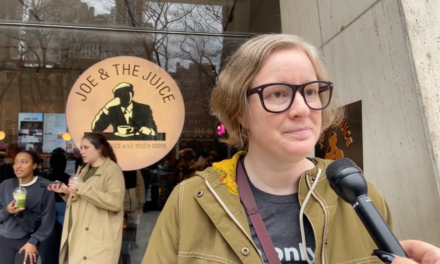In a significant political maneuver, the Trump administration has made headlines recently with its ongoing efforts to defund Harvard University. This initiative has ignited a debate amongst conservative thinkers and political leaders, revealing deep-seated divisions within the ranks of right-leaning supporters. As the conversation surrounding higher education funding continues, many are left questioning the implications of such actions on academic institutions and conservative ideologies.
The foundation of this controversy is rooted in the administration’s discontent with Ivy League universities, particularly Harvard, which it accuses of fostering an elitist culture that perpetuates a liberal agenda. The administration has highlighted instances where it believes Harvard has stepped beyond traditional educational boundaries, asserting that the university’s policies and practices are counterproductive to American values and principles.
One of the primary reasons for this initiative involves allegations of financial misconduct associated with the university’s handling of federal funding. The Trump administration has suggested that Harva…
rd’s financial aid policies are discriminatory and favor certain groups over others, which they argue contradicts the principles of meritocracy that conservatives often champion.
Furthermore, the administration has taken issue with Harvard’s admission policies, particularly surrounding affirmative action. Critics within the conservative movement argue that these policies unfairly disadvantage students from less privileged backgrounds in favor of individuals from race-based or demographic categories. Tensions have escalated as the Trump administration has indicated that it would take legal action against institutions like Harvard that it believes engage in such discriminatory practices.
This ongoing conflict has engendered a schism among conservatives. On one side, staunch supporters of the initiative believe that defunding institutions that do not align with conservative values is a necessary course of action. Supporters argue that universities like Harvard are not only misusing taxpayer dollars but also contributing to a culture that undermines intellectual inquiry and free speech.
A prominent argument from this faction is the belief that academia has become infested with radical left ideologies that suppress conservative thought. Many supporters feel energized by the idea that federal finances should not support institutions that they believe actively promote policies that contradict conservative beliefs.
On the other hand, a significant faction within the conservative community has raised concerns about the dangers of defunding universities, particularly those with long-standing reputations such as Harvard. This group argues that such actions could set a perilous precedent wherein the government can dictate the terms of a university’s operation based solely on ideological differences.
Critics of the administration’s stance highlight that further defunding of educational institutions could severely restrict access to higher education for countless students, particularly those from lower-income backgrounds who rely on financial aid to pursue their academic aspirations. They also fear that attacking prestigious institutions could diminish the overall quality of education and research in the United States, potentially hindering innovation and growth.
Moreover, this faction contends that the battle against supposed liberal bias on college campuses does not necessitate defunding. Instead, they propose a different approach—promoting free-market principles in education, increasing competition among institutions, and fostering alternative modes of education, such as vocational training and online learning programs.
The internal conflict within conservatism over the Trump administration’s defunding agenda also exposes larger ideological fractures that could influence the future of the conservative movement. Some conservatives are advocating for a reimagining of what conservatism means in the context of education and intellectual discourse. They express a desire to create an environment where diverse thought can exist alongside traditional conservative perspectives.
This division has gained significant traction within broader conservative networks on social media platforms, where supporters and detractors of the initiative engage in debates over the efficacy and morality of defunding academia. Online forums have brimmed with arguments, some championing the cause as a necessary fight against a perceived leftward drift in education, while others have cautioned against the implications that defunding might carry for the future of intellectual freedom.
As the conversation evolves, many are pondering what this means for the relationship between the conservative movement and higher education moving forward. If defunding Harvard succeeds or even gains traction, there lies the possibility that it could initiate a widespread reconsideration of the government’s role in funding education, particularly within institutions perceived as bastions of liberalism.
Consequentially, this issue not only raises questions about the financial viability of such institutions but also calls into the spotlight the very ethos of American higher education. Would a sustained campaign against elite universities lead to a diluted standard of scholarship and academic freedom? Are conservatives willing to risk the long-term ramifications of such an ideological stand? These questions linger as the debate rages on.
Additionally, the ideological fight within conservatism signals a critical moment in the landscape of American politics, where educational policy and funding could play pivotal roles in shaping voter sentiment and engagement in upcoming elections. The effectiveness of the Trump administration’s defunding strategy could influence how voters perceive the Republican Party’s commitment to educational access and intellectual diversity.
The ramifications of the administration’s actions stretch far beyond financial losses; they could fundamentally reshape the relationship between political ideology and education in the United States. The growing chasm within conservative circles around this issue could lead to either the reinforcement of a singular conservative narrative or the emergence of a more nuanced understanding of the complexities surrounding education and governance.
In the coming months, as policies surrounding educational funding continue to evolve, it will be crucial for all stakeholders to engage in constructive dialogue that considers the implications of defunding. Finding common ground may prove essential if conservatives aim to present a unified front while navigating the challenging landscape of American higher education.
Ultimately, the Conservative party will face the task of interrogating its principles amidst a turbulent era of political division. As discussions magnify regarding defunding elite institutions like Harvard, one thing is clear: the outcome of this ideological battle could have lasting consequences on the future of education and the role of government in American life.
































